RARE! WWII 1943 Army Air Force (AAF) B-24 Bombardier Double-Sided Target Chart “ANCONA AREA” Forli, Italy


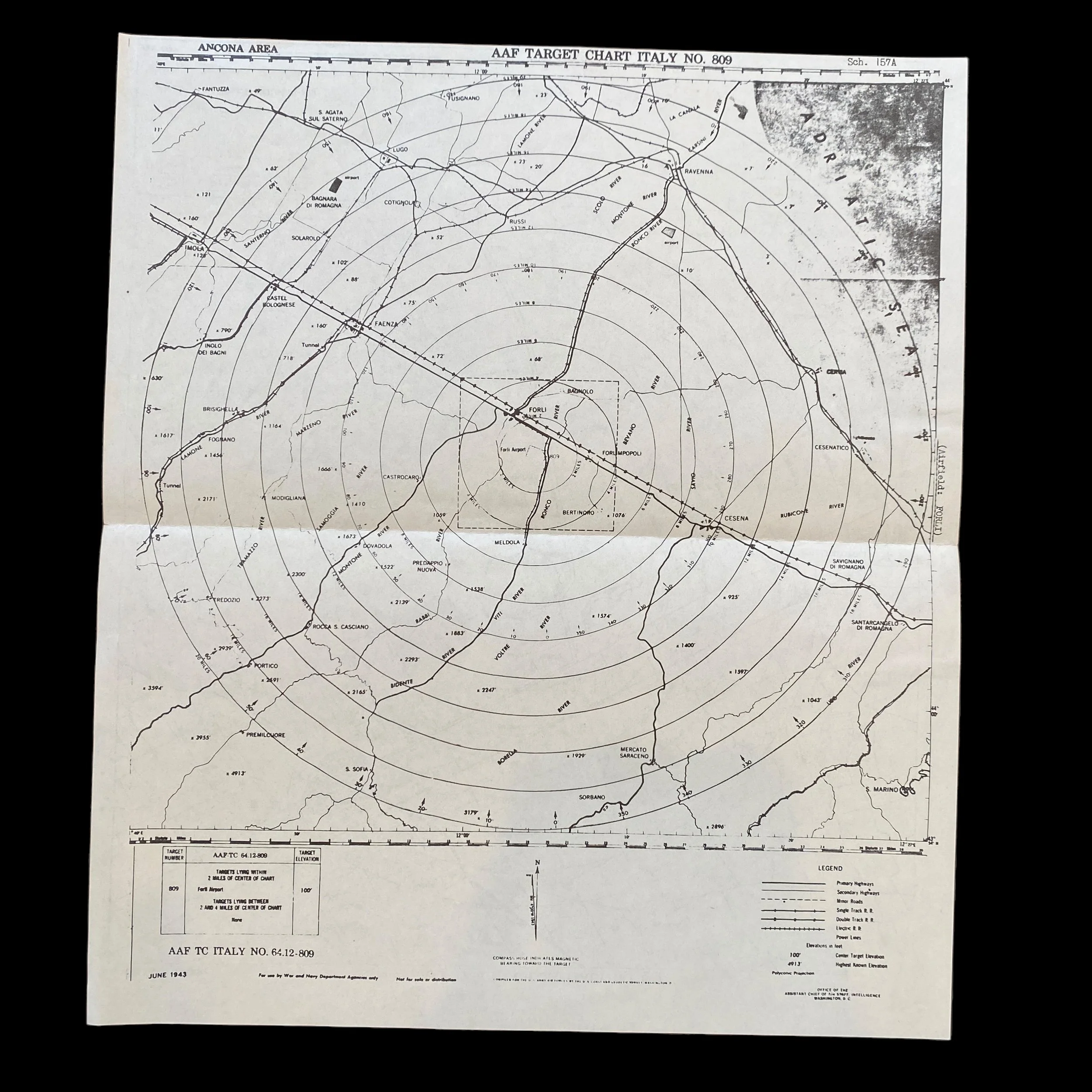

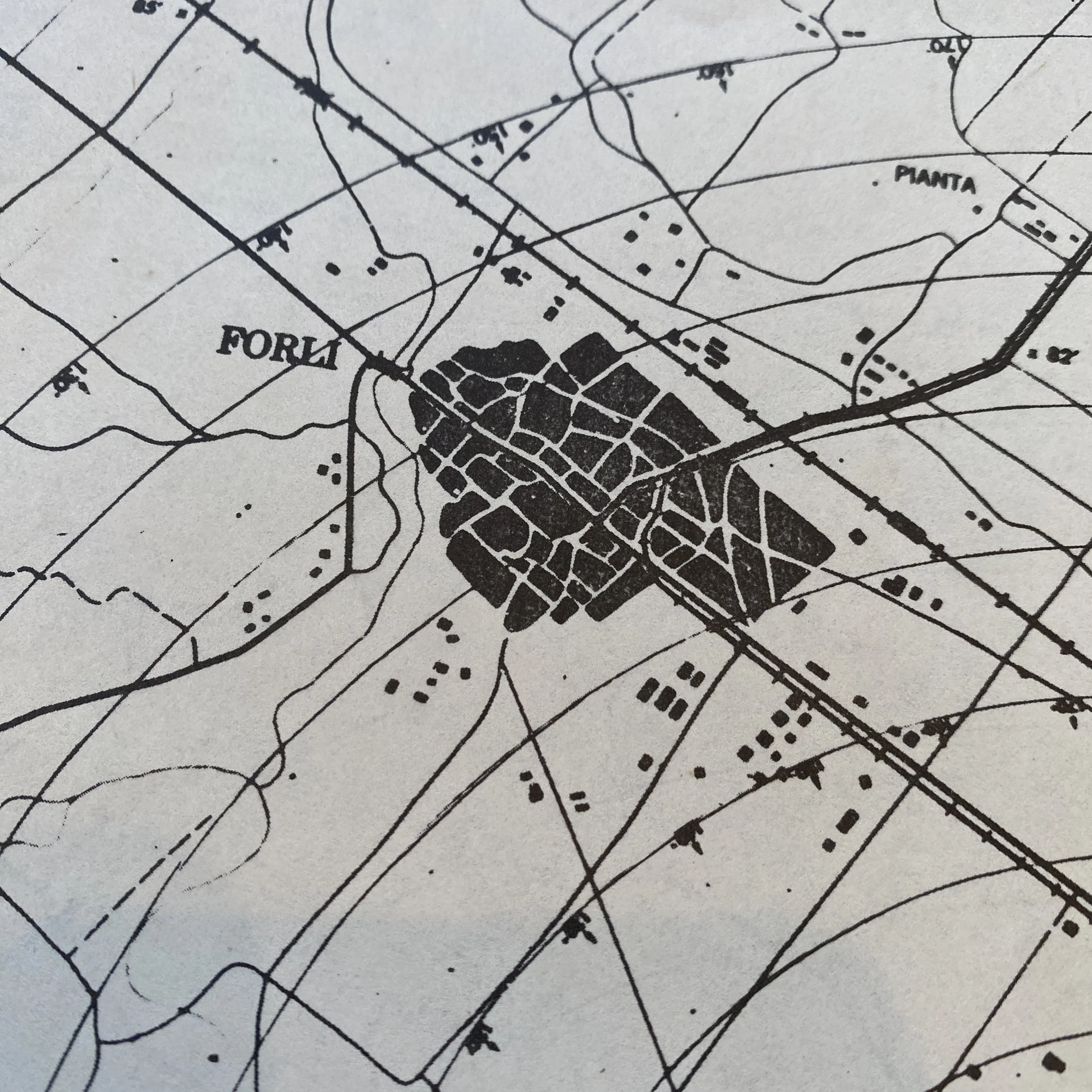
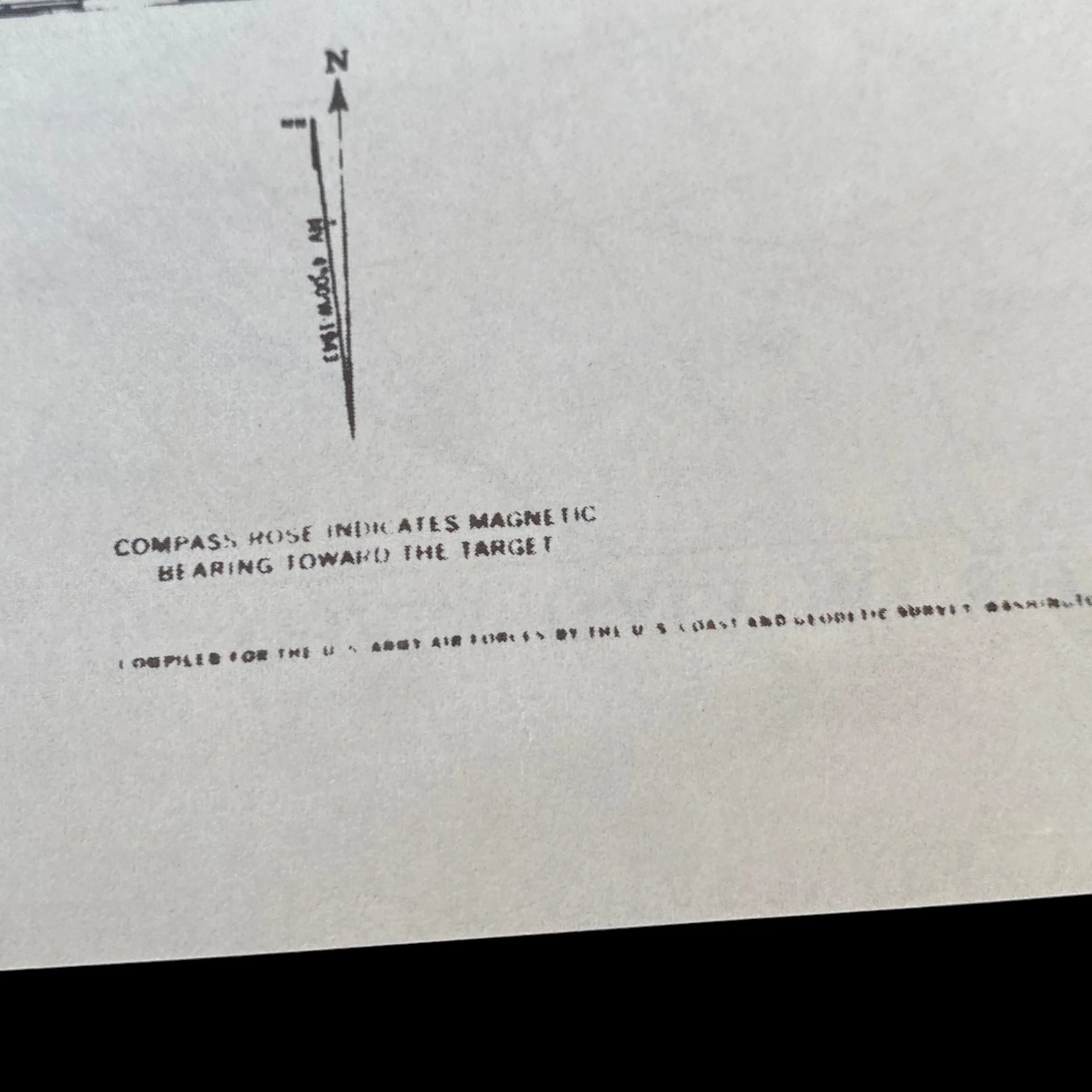

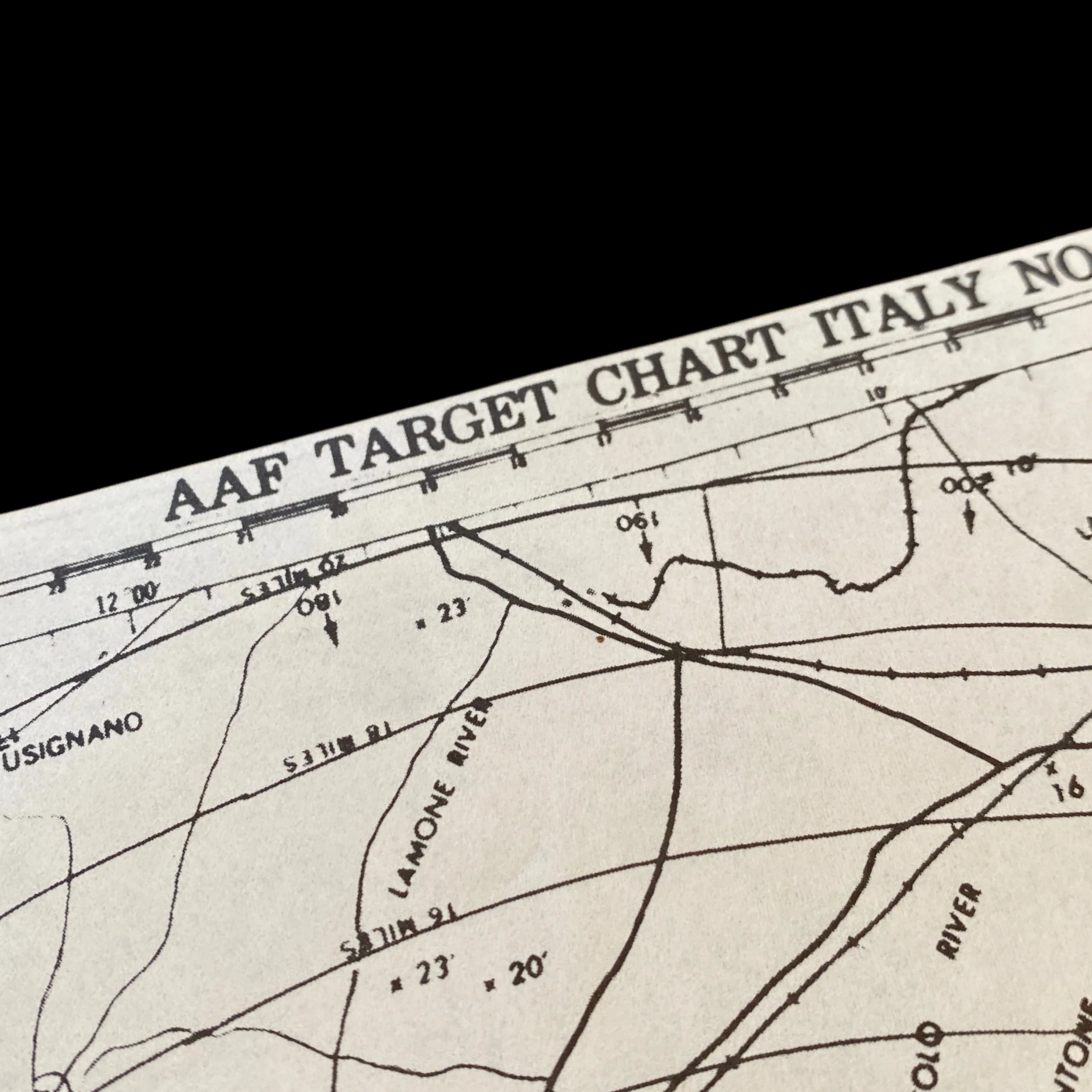
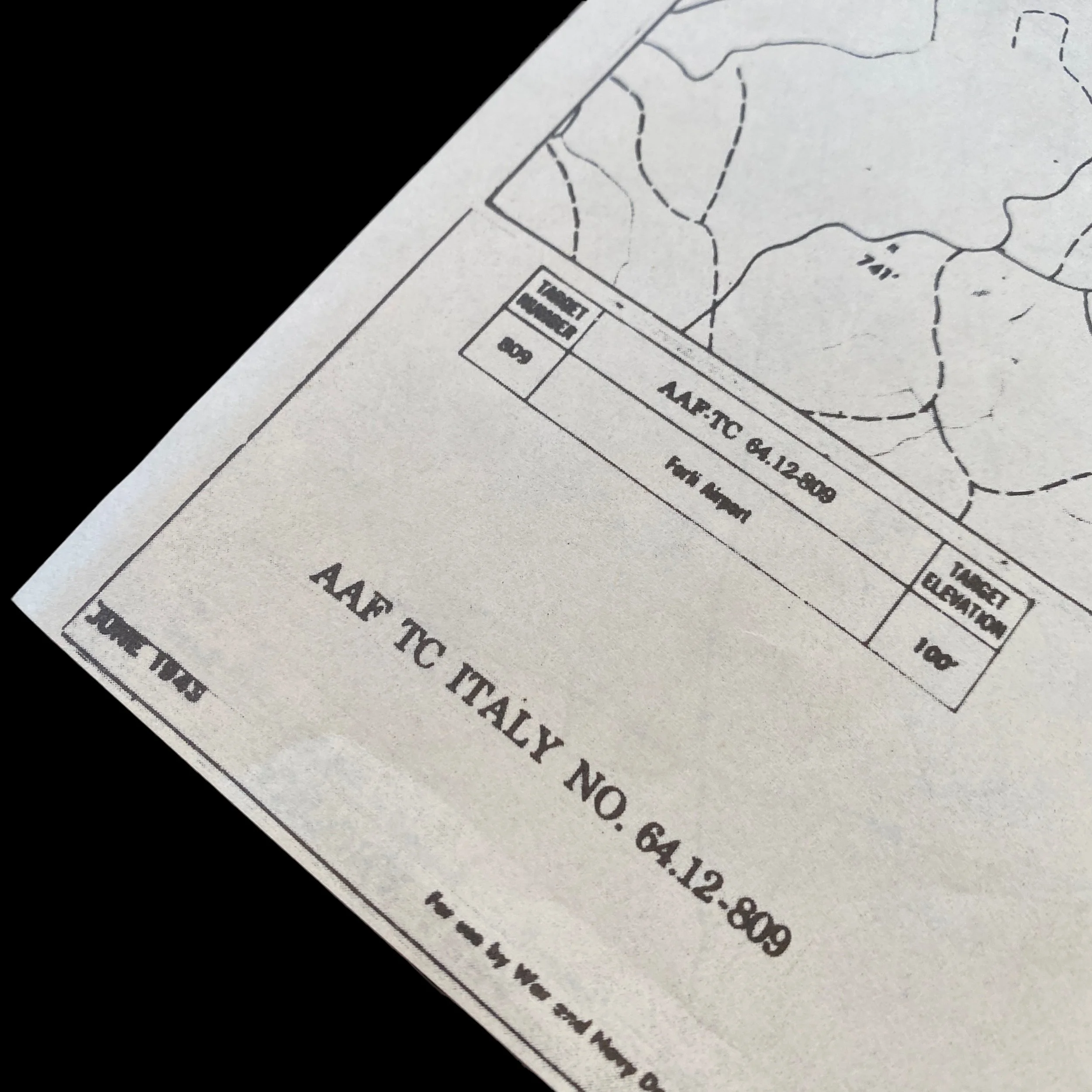



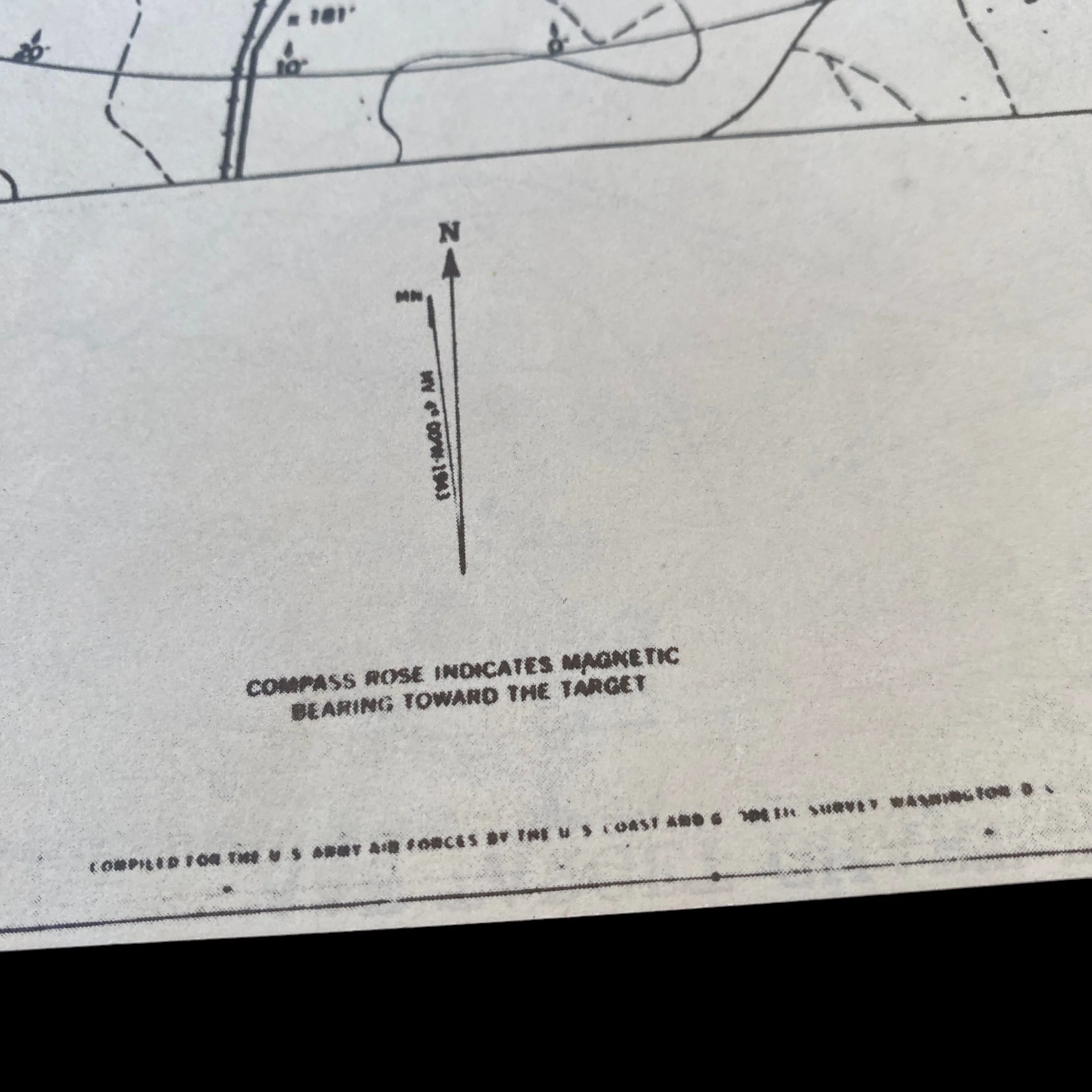






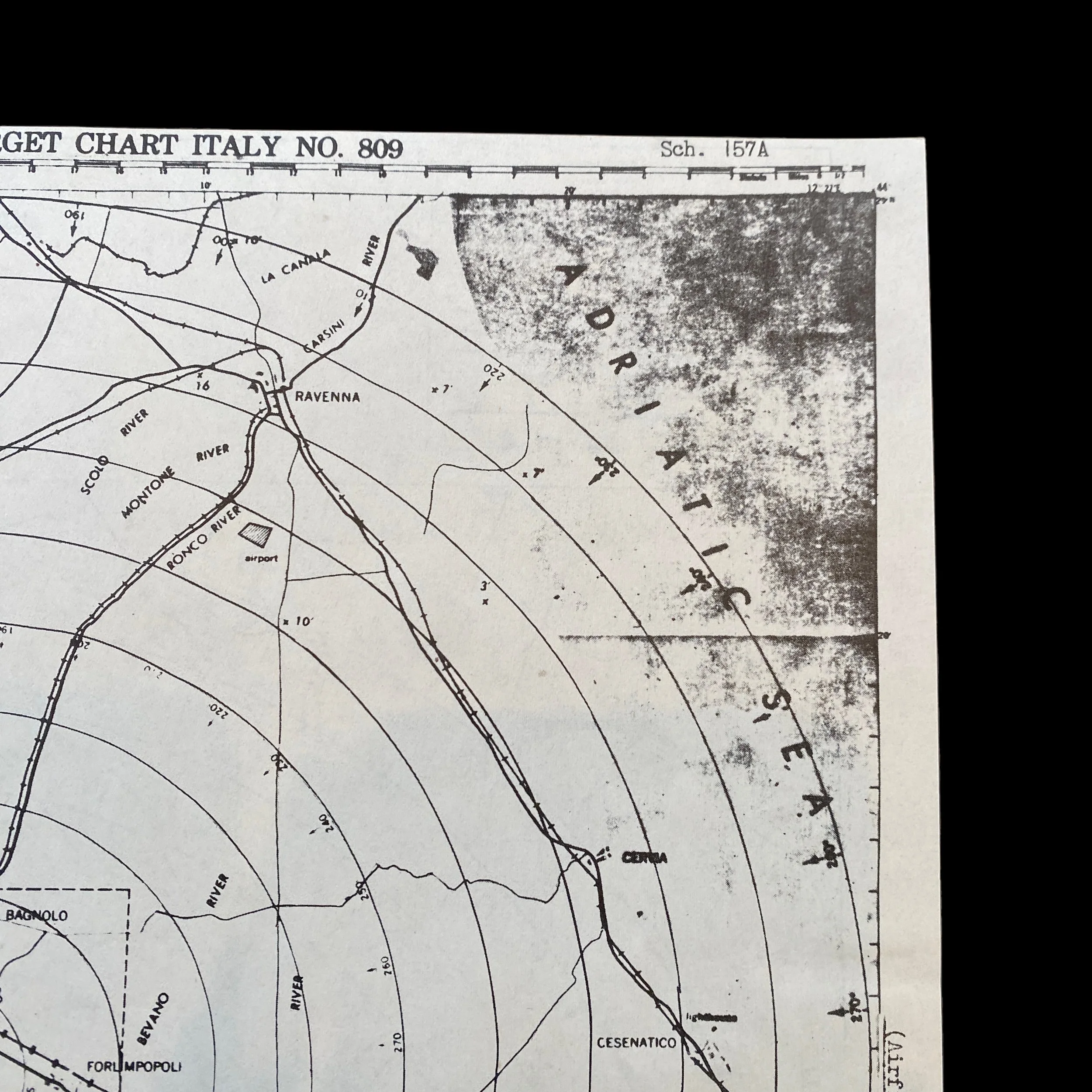


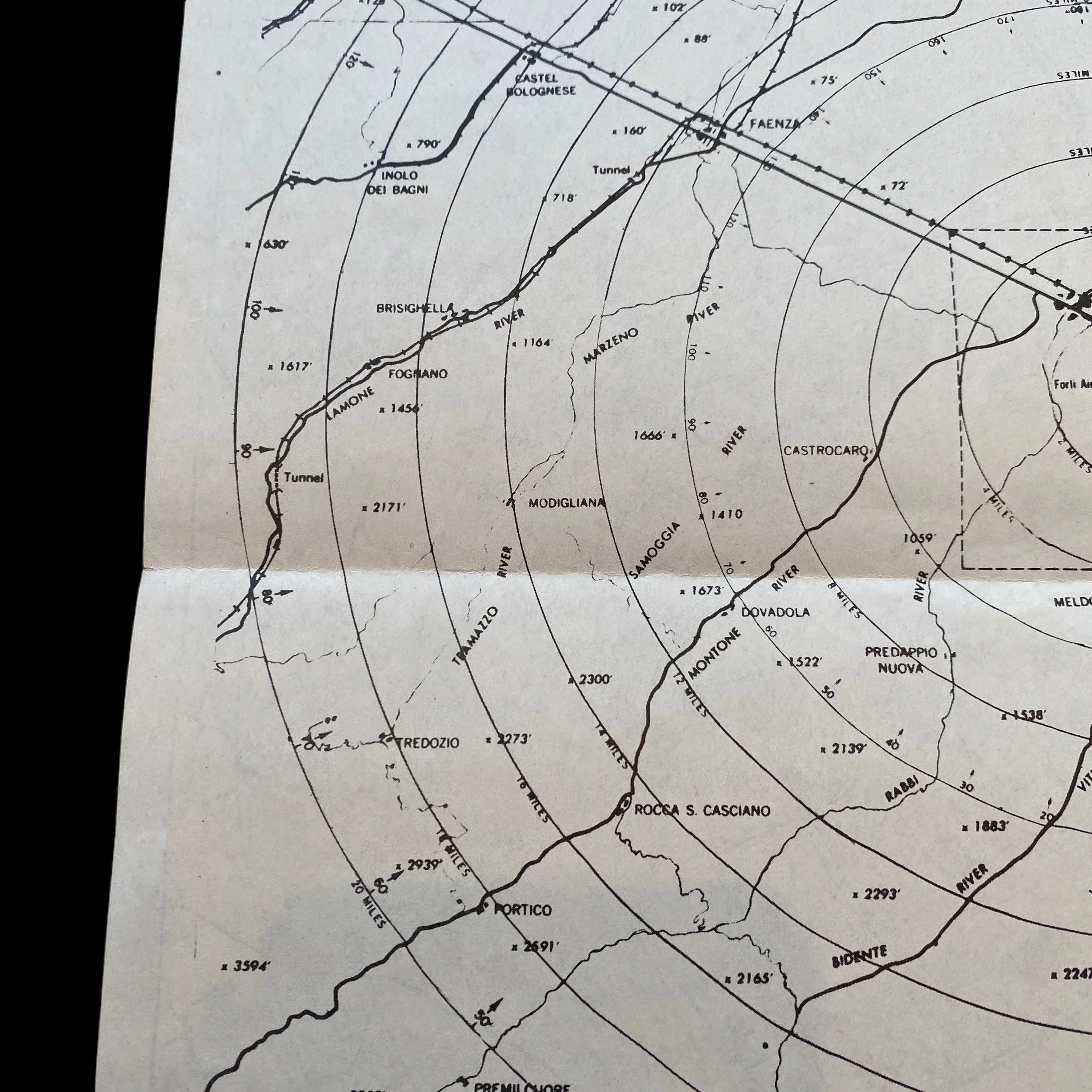
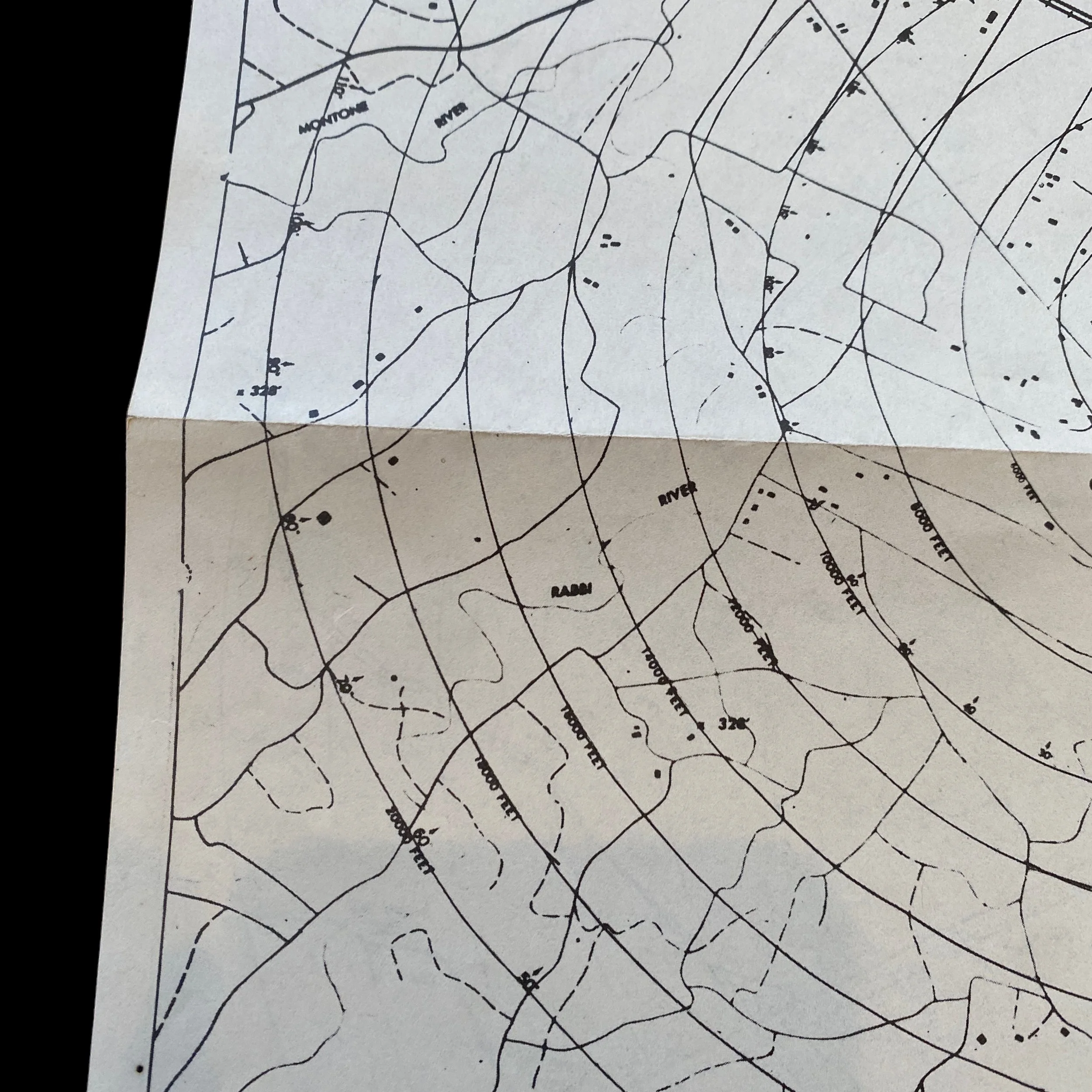


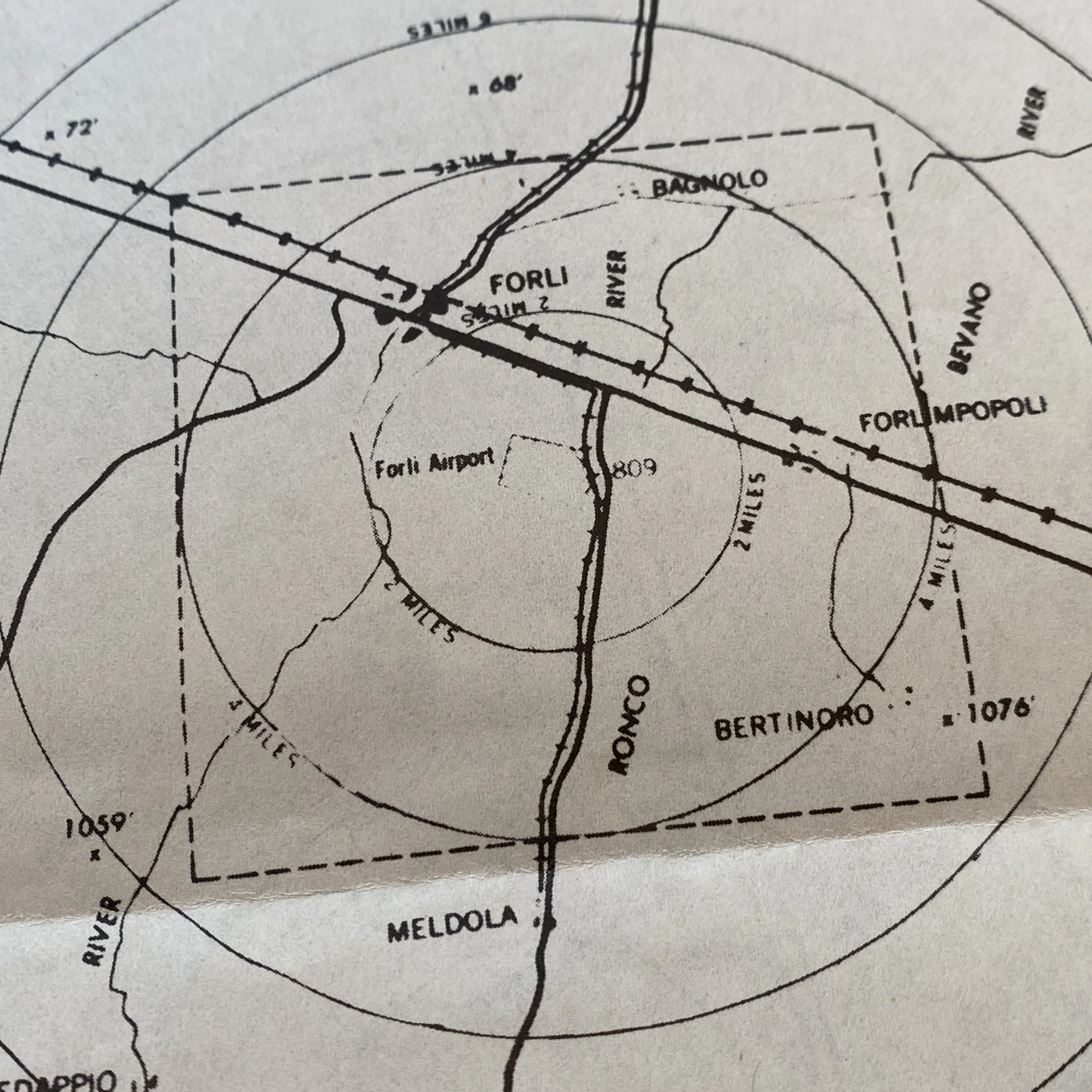
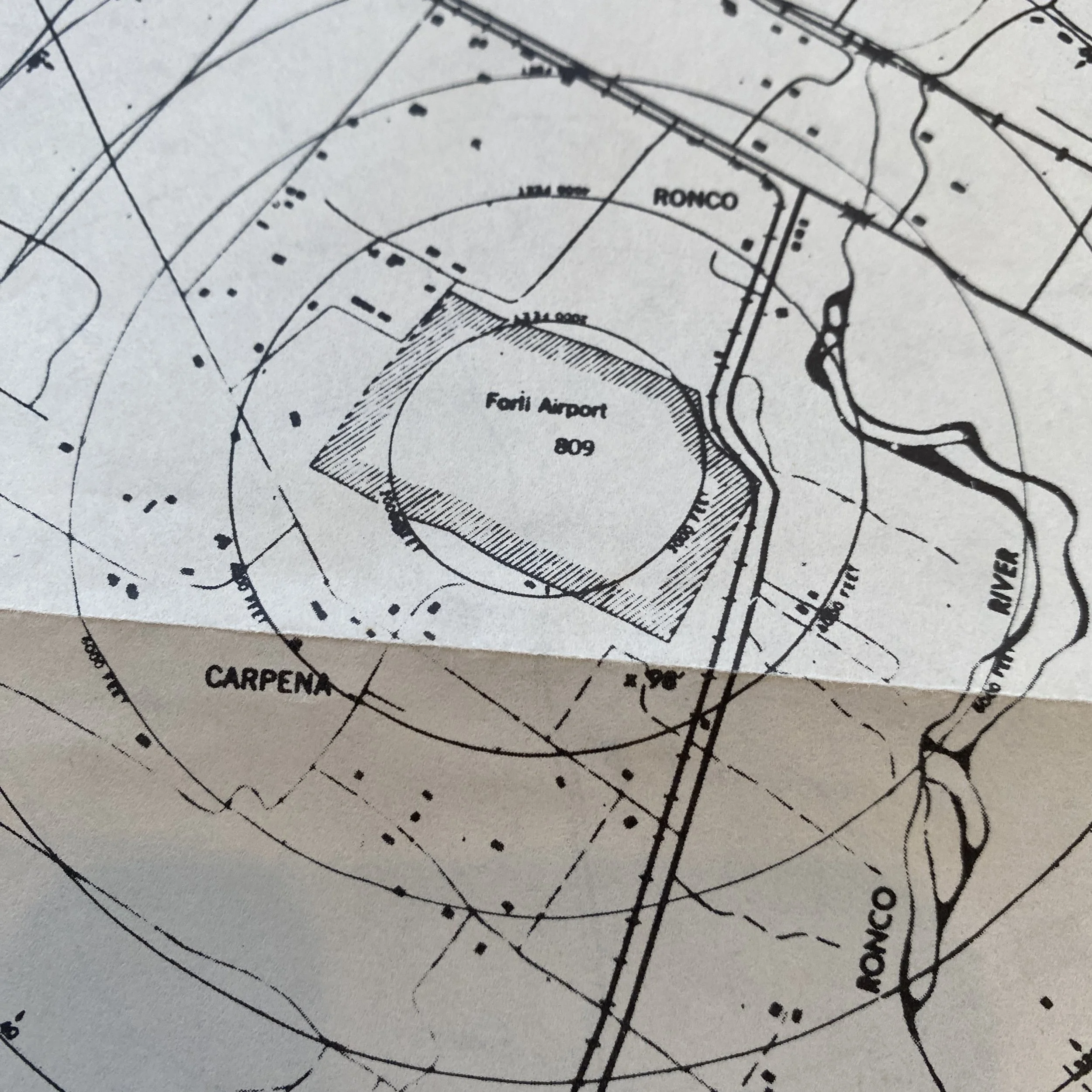
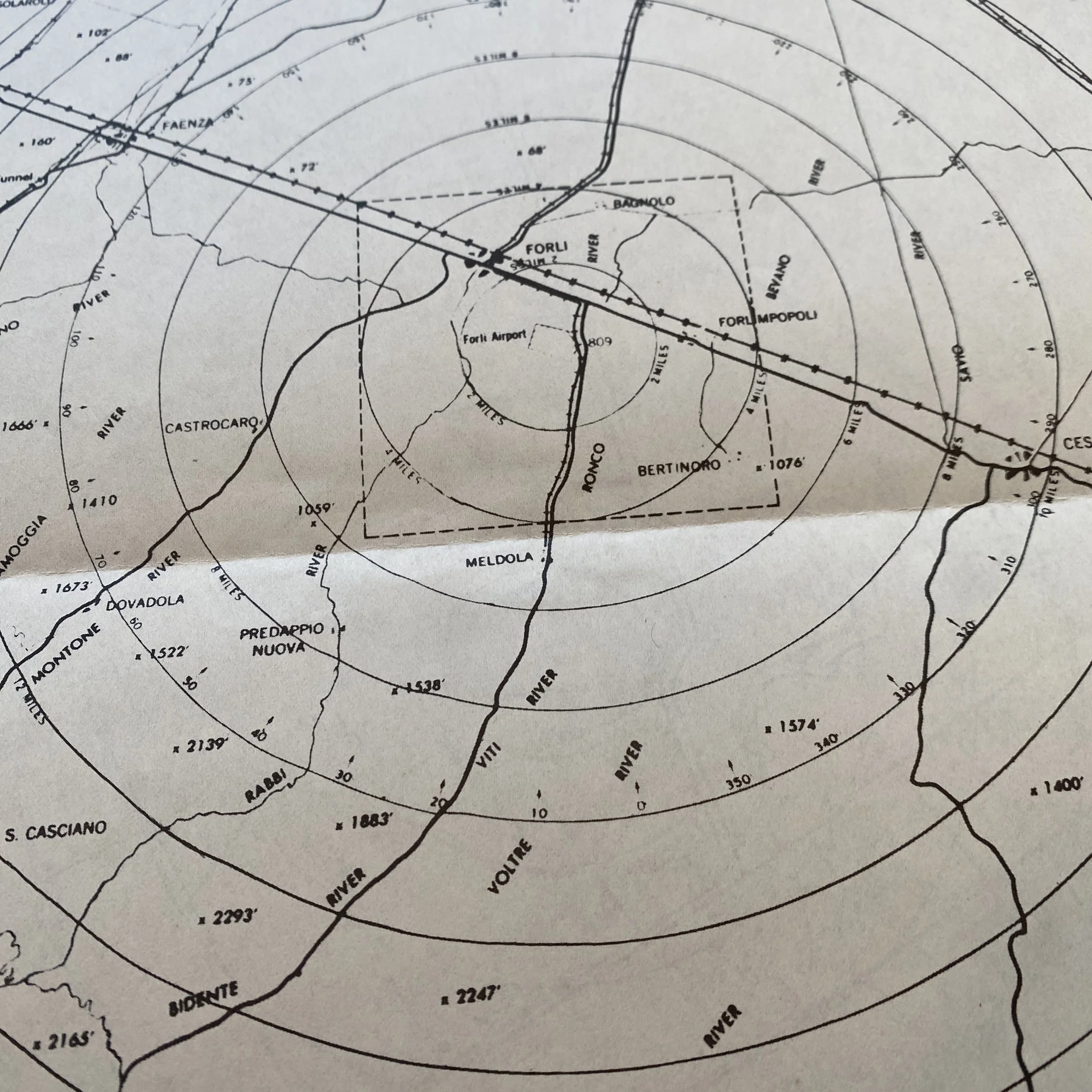
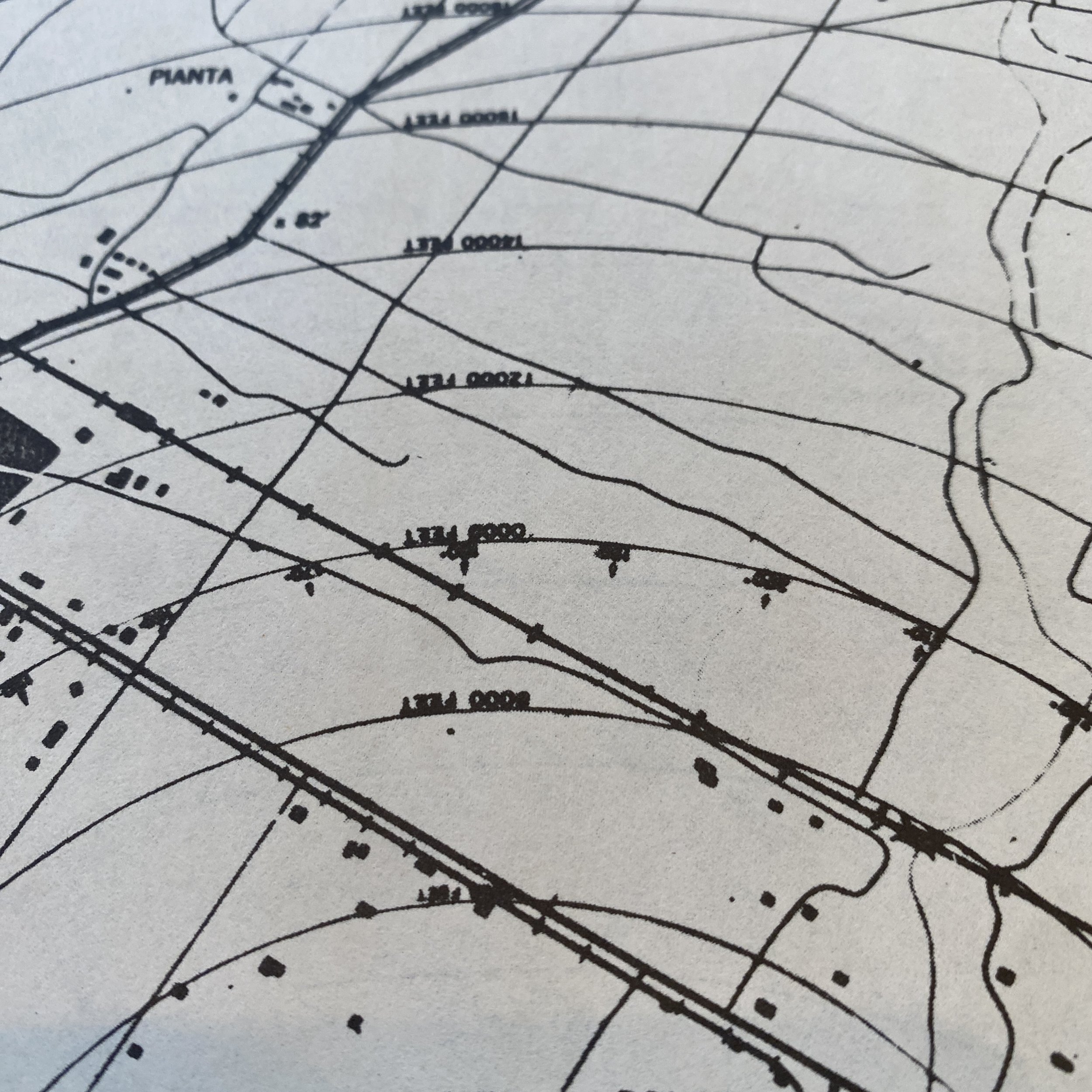


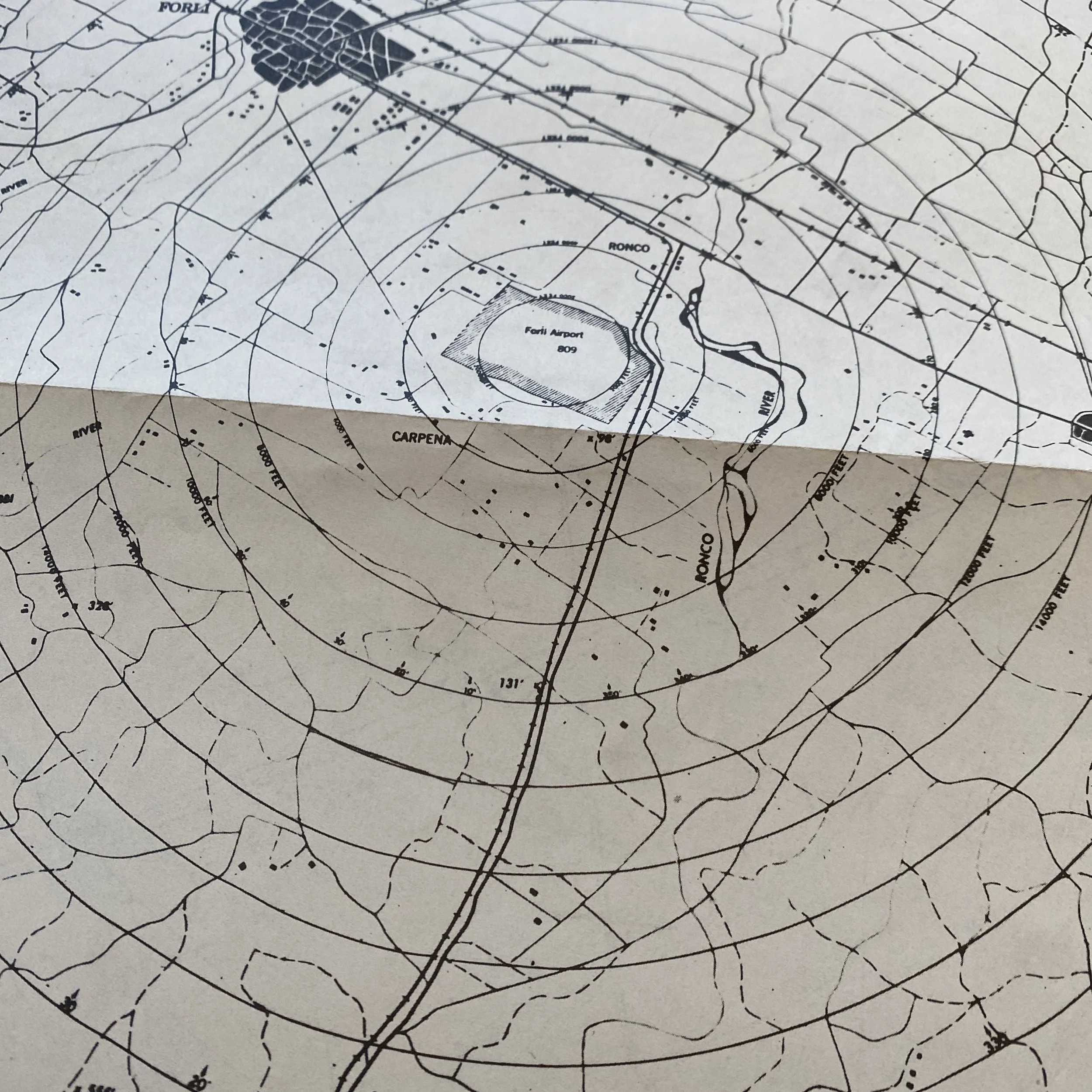
RARE! WWII 1943 Army Air Force (AAF) B-24 Bombardier Double-Sided Target Chart “ANCONA AREA” Forli, Italy
Comes with hand-signed C.O.A.
This incredible rare and museum-grade WWII Army Air Force (AAF) Target Chart Italy is a double combat map used during the Allied Strategic Bombing Campaign of the European Theater. Dated 1943 this double-sided target approach chart shows the “ANCONA AREA” of Forli, Italy. This mission chart was used by the bombardiers of the 15th Air Force’s B-17 Flying Fortresses and B-24’s. This specific map was used by a WWII bombardier (B-24) during the 15th Air Force bombing raids on Forli in 1944. This was not a standard issued target map and is a rare 15th AF “THEATER MADE” map making this edition more rare and valuable.
During World War II, Forlì, Italy, held significant strategic importance due to its location in the Emilia-Romagna region, which served as a crucial transportation hub and industrial center for the Axis powers. Forlì was not only a key railway junction but also housed important manufacturing facilities, including aircraft factories and motor vehicle production plants, making it a prime target for Allied forces.
The Allies recognized the strategic value of disrupting Axis supply lines and crippling their industrial capabilities, thus making Forlì a priority target for aerial bombing raids. The United States Army Air Forces (USAAF), along with other Allied air forces, conducted numerous bombing missions on Forlì throughout the course of the war.
One of the primary objectives of these bombing raids was to cripple the Axis transportation infrastructure. Forlì's railway yards and marshalling facilities were crucial for the movement of troops, equipment, and supplies to the front lines. By targeting these transportation nodes, Allied forces aimed to disrupt Axis logistics and hinder their ability to reinforce and resupply their forces.
Furthermore, Forlì's industrial facilities were vital for the Axis war effort. The city was home to factories producing aircraft, vehicles, and other essential war materials. By targeting these factories, Allied bombers sought to degrade Axis military production capacity, reducing their ability to sustain their war effort.
The bombing raids on Forlì were part of the broader Allied strategy of strategic bombing, which aimed to weaken the enemy's ability to wage war by targeting key industrial and infrastructure targets. These raids were often carried out by large formations of bombers, escorted by fighter aircraft to defend against enemy fighters and anti-aircraft defenses.
However, the bombing campaigns on Forlì were not without controversy and consequences. Civilian casualties and damage to non-military targets were an inevitable result of the intense aerial bombardment. Additionally, Forlì's historical and cultural heritage suffered significant destruction during the raids.
Despite these challenges, the Allied bombing raids on Forlì played a crucial role in the overall Allied effort to defeat the Axis powers. By disrupting Axis supply lines and industrial production, these raids contributed to the eventual Allied victory in the European Theater of Operations.